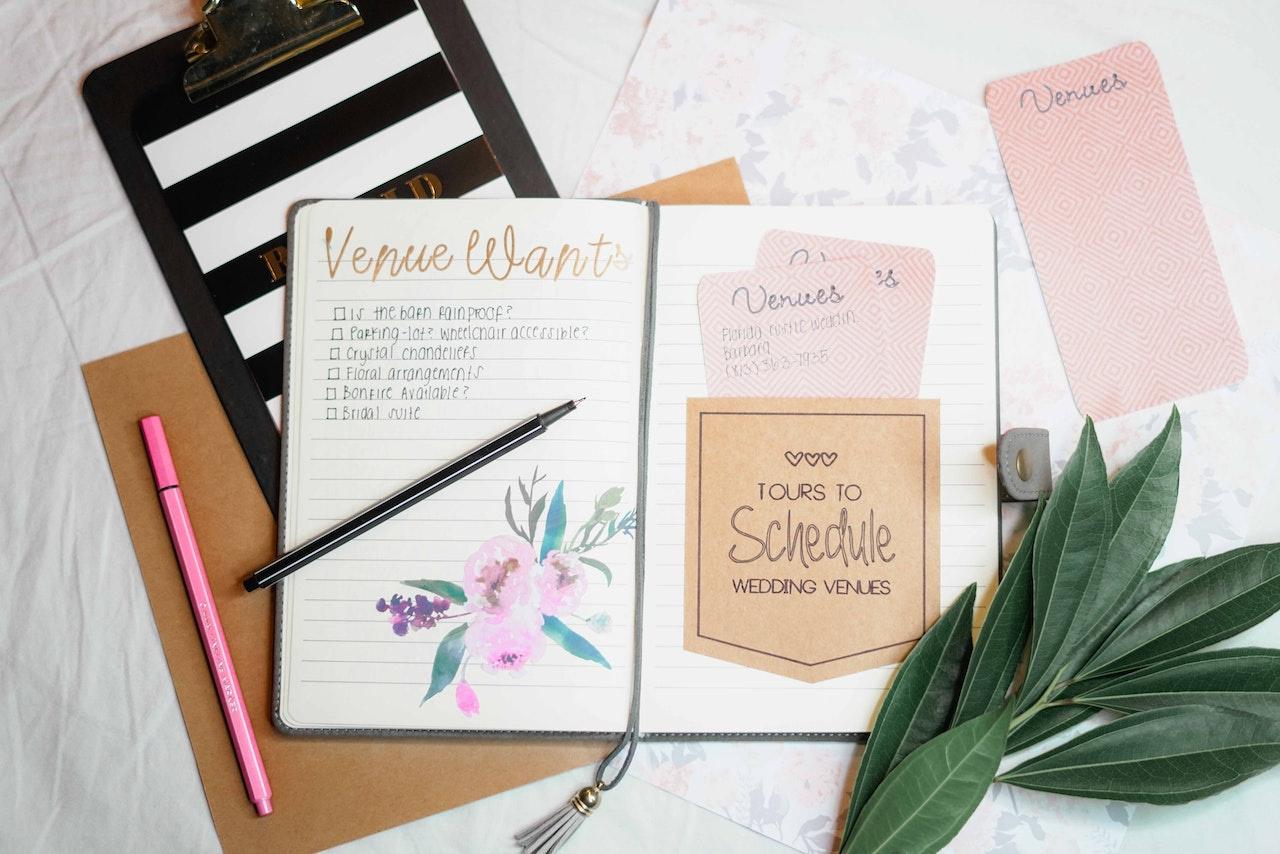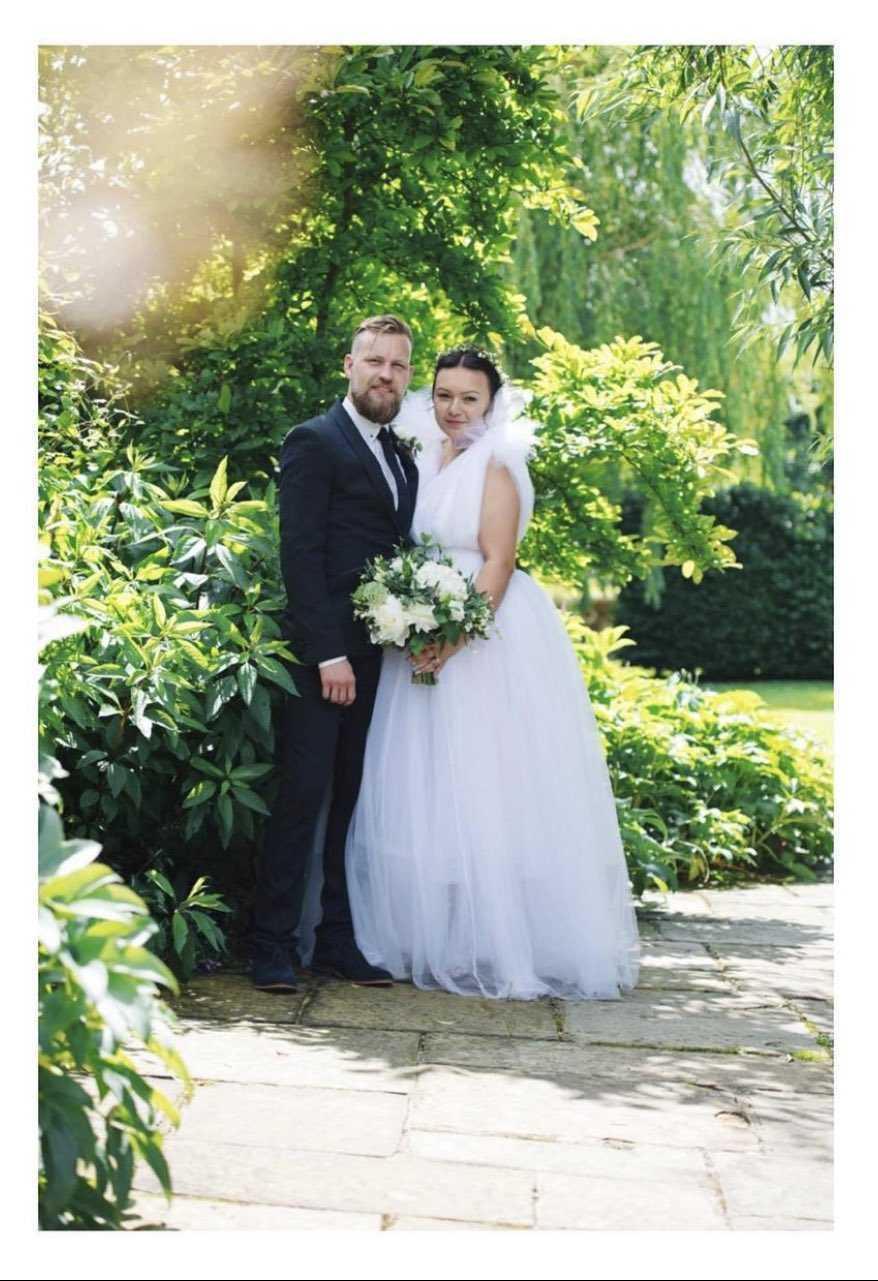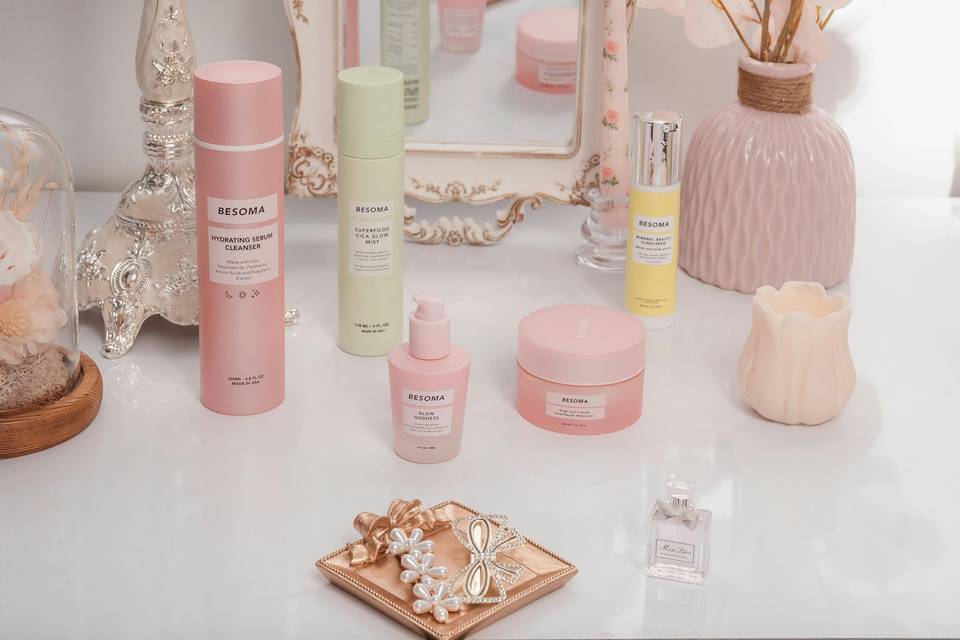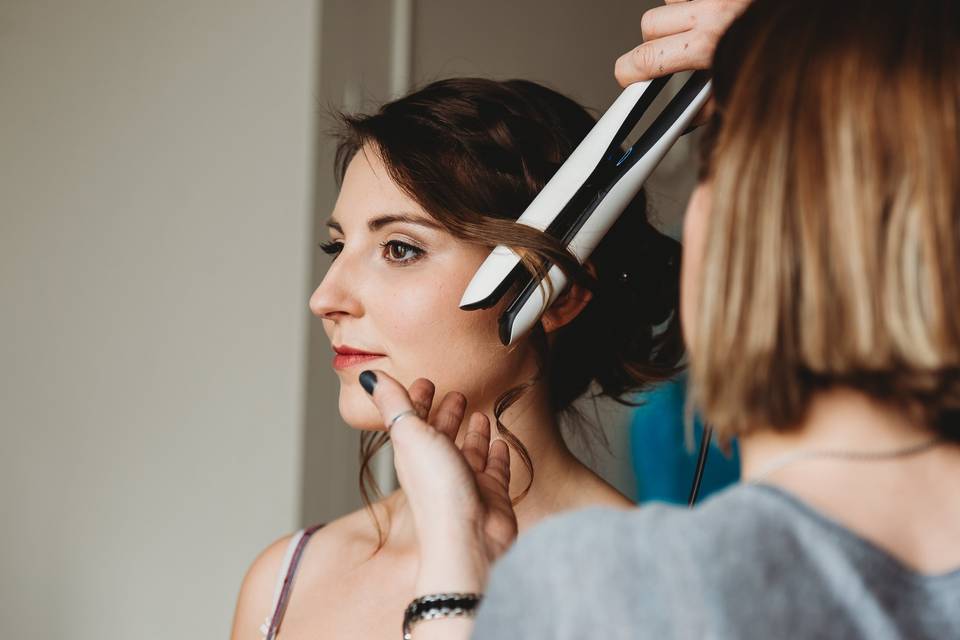What It's Like to Plan a Wedding with ADHD
Planning a wedding can be one of the most stressful experiences a person can have, but it can be even more challenging when you're living with ADHD. We asked brides with ADHD to share their experiences & tips


Planning a wedding isn’t without its challenges, and these can be amplified if you are also living with ADHD.
According to the NHS website, “Attention deficit hyperactivity disorder (ADHD) is a condition that affects people's behaviour. People with ADHD can seem restless, may have trouble concentrating and may act on impulse.”
The page goes on to list a range of symptoms that adults with ADHD may find they have problems with, including organisation and time management, focusing and completing tasks, coping with stress and feeling restless or impatient – amongst a very many other things.
I was diagnosed with ADHD at the ripe age of 36, after many years of struggling with poor mental health that was only getting worse by the day. Amongst (many) other things, one of the biggest symptoms I was dealing with, and which led me to researching the hell out of what I was living through, was my innate lack of organisation and time management.
That’s not to say that I’m necessarily a spontaneous person, but when it came to planning future tasks, making long-term goals, or setting objectives and targets, I wasn’t able to see past what was happening that day, or later that week. That’s because for a lot of people who have ADHD, we deal with time differently.
One way I describe ADHD time to people is through the 'now or not now' analogy. If something is happening soon, it’s happening 'now', and I fixate and hyperfocus on that thing until it’s done. If it’s happening later, it’s happening “not now” and it’s promptly forgotten about until… The deadline looms and it then becomes a thing that is happening now. ADHDers love a deadline.

You can see why planning a wedding might then become a 'not now' task, and something to be put off for a later time; not something to worry or dwell on months or years before your chosen date. Well, not so! The latest National Wedding Survey showed that most couples in 2021 spent an average of two years planning their weddings, though it’s certainly possible to do it in less (though probably not in the four hours of hyperfocus you will randomly have next Thursday at 9pm), making it the hellish combination of a 'now' and a 'not now' jobby. Excruciating!
So, in order to help nearlyweds with ADHD through the planning stages of their big day, we spoke with four folks who have been there, done that, and lived to tell the tale. Here are the five biggest tips for those planning a wedding with ADHD.
How to Plan a Wedding with ADHD: Tips from Real Brides with ADHD
1. Go Back to Basics

A huge symptom of ADHD is procrastination. This is often referred to as ‘task paralysis’ and it happens when it feels like there is an overwhelming amount of things to do, and you just don’t know where to start. Many neurotypical people will look at a blank page and see opportunities, but for people with ADHD there is nothing more terrifying.
Charli Searchwell-Guest, who is a wedding planner and also planned her own 2022 wedding while awaiting her diagnosis, says that stripping away all the bells and whistles regularly associated with wedding planning is the most important thing to remember: “Don’t use 50 steps when 10 will do. Use a simple Google Sheet or Doc to track your budget, your spend and your deposits due,” she says.
“You don't need any of the complicated Pinterest documents to plan your perfect wedding! For people with ADHD, unnecessary details are our nemesis, so start with the basics. You need a few columns, and a running sum at the bottom so you know the totals. Start basic with the things you know you definitely need: venue, food, guests, and then if you feel like you know your way around a spreadsheet, you can add extra formulas or columns as you need them.
“With the due dates, put these in your phone calendar the second you are told about them - do not trust your brain to remind you of that meeting with the wedding photographer, or the date you need to pay a certain deposit... You probably will remember them, but only two weeks too late at 2am when you know you should have been asleep at 10pm.”
Liz Hinds, who is currently in the midst of planning a wedding agrees. “Make checklists!” Liz advises. “There are loads of resources online about what you should be doing and when, I found one or two that were relevant for our planning needs and condensed them into an ultimate wedding list in my to-do app.”
READ MORE: Download the Free Hitched Wedding Planning App
2. Give Yourself Plenty of Time

Another thing people with ADHD are known for is starting new projects, and then promptly losing interest in them. We are constantly seeking out new ways to trigger dopamine hits to the brain, so often start new projects to fulfil that immediate hit of dopamine, only to get bored after a few days (or hours) and move onto the next project. Again, this is not conducive to successful wedding planning!
“I would say start planning earlier than you really plan to start planning,” says Jodie Harris, who planned her wedding six years ago, before her official ADHD diagnosis. “This will mean you’ll give yourself enough time to book in the big things: wedding venue, caterers, photographers and bands or entertainment.. Don't assume you can work around these things - they book up quickly!”
READ MORE: Find Your Wedding Suppliers Here
Because of the ‘now vs not now’ time analogy, people with ADHD may struggle with the fairly strict timelines and deadlines that come with wedding planning. Jodie continues: “Plenty of people who have ADHD can naturally wing things but weddings aren't something you can just wing!
“There are strict deadlines for notice of marriage, and documents you need to have. Plus, suppliers get booked up quickly and you are competing with every other person planning a wedding to get them for the day you want. I wasn't prepared for that, so most suppliers who would have been my first choice were already booked for the date of my wedding.”
3. Get Help with the 'Boring' Bits

Not only do those of us who live with ADHD regularly get bored of new projects and move on to something new before the task at hand is completed, but we’re also notorious for being easily distracted. This can be made a whole lot worse if the task at hand isn’t providing enough interest to keep our attention – tasks like wedmin.
I am so bad at admin in general, that I actually have an 'designated adult' who reads all my important documents for me, because I cannot be trusted to deal with them in the right way. To me, there is nothing more boring than a wall of text, or sheets of paper asking me for (or giving me!) dull information.
“The fun stuff is a lot easier to crack on with, though I do rely on the impending pressure of a deadline to get things done,” says Lucinda Hurst, who’s currently in the midst of planning not one but two weddings, two years apart.
“There’s a good chance we will get to our second wedding in May 2024 and I won’t have done half the things I meant to. The admin is a nightmare for my ADHD! I’ve had to triple check forms millions of times and everything just takes ten times longer when my brain is just not interested. I can read the same information over and over, but it just won’t go in.”
Liz agrees, saying: “Research is probably the hardest part for me. If I don’t know my way around a subject, I can often find myself feeling overwhelmed and not knowing where to start. Especially the aspects that require extra care, such as legality - and there’s lots of it with us being from two different countries.”
READ MORE: Everything You Need to Know About Planning a Wedding Abroad
In instances like these, lean on someone who you trust to help you navigate the paperwork correctly. Perhaps it’s not your partner, or even a professional wedding planner, but just someone who is great with details, and who can break down lots of information into actionable pieces for you to complete yourself.
4. Don't Get Hung Up on What a Wedding 'Should' Be
Back to that ‘blank page being terrifying’ thing I mentioned earlier. It’s why I love a template; if I’ve done something before and it’s worked well, I will use that as a basis of how to do the next thing. Because of this, many people with ADHD will be tempted to seek out examples of what ‘good’ weddings look like, and try to replicate them.
But – and really, this should apply to every wedding and not just those being planned by people with ADHD: it’s your day, and you can do what you want! Wedding traditions exist, yes, but rules are there to be broken.
On this, Lucinda says, “It’s important that the day feels like us, and I’m not always the best at making decisions - I want to do everything instead of picking one option! By the time we get to the wedding I imagine the theme will be a completely random mix of all the stuff we like, but we’re fine with that.
“There isn’t a set colour palette for the wedding, instead it’s inspired by wild flowers so there will be plenty of colour! So far we have agreed on dopamine décor, lawn games, our favourite Italian beers, a taco bar, seaside treats, classical versions of pop songs… and a million and one other things!”
READ MORE: The Wedding Traditions You Can Skip
Jodie and Charli both agree on this point: “It's your wedding, so include the bits you love about weddings and take the unnecessary parts out,” says Jodie. “Weddings are overwhelming at the best of times, let alone if you are having executive dysfunction over what wedding favours to choose just because you think you should have favours!”
“Throw the rule book out,” adds Charli. “Don't feel like you need to do anything a certain way. You don't want a first dance, don't have it. If sending written invites is too much bandwidth, send them by email. The thought of picking menus, or dealing with catering companies is overwhelming? I know someone whose wedding breakfast was fish and chips from the local chippy and it was AMAZING.”
5. Consider Your Own Needs for Your Wedding Day
For adults with a late diagnosis like me, we have spent a lot of our lives masking our disabilities to get by in a very neurotypical world. ‘Masking’ can include things like: forcing eye contact because you know it’s rude not to, mimicking body language of those around you because the environment makes you feel uncomfortable, practising conversations in your head before you have them so you are prepared, etc. It’s exhausting, mentally.
As well as masking, many people with ADHD will also struggle with external stimuli like loud or irregular noises, bright or flashing lights, itchy or tight clothing, among other things. Too much masking combined with overstimulation can lead to what’s called an ADHD meltdown, and it’s basically what it says on the tin: definitely not a Fun Time.
So, you can imagine that a wedding day might be something of a recipe for a meltdown, unless you prepare for it. Lucinda says, “If a big ceremony with loads of people looking at you feels stressful, cut your guestlist, or do what we’re doing and get the legal part out of the way earlier.
“We’ve asked one of our favourite people in the world to do the blessing, so it’s not some stranger on the day. We’ve also picked a venue with a breakout space, where I’ll be creating a cosy spot with essential oil diffusers and plenty of cushions away from the noise and stimulation of the party.
“We’re also limiting our guest list for the day, and not really having evening guests. My social battery can run quite low if I need to socialise for a long time with a large group of people - especially if I have to run through the same conversations over and over.”
So, there you have it. While the daily struggles of living with ADHD might seem like they’re not conducive to successfully planning a wedding, these excellent nuggets of wisdom prove that actually, given the right accommodations, anything is possible. Just remember:
- Go back to basics, and keep things simple from the outset so as to not get overwhelmed by all the unnecessary bells and whistles of wedding planning.
- Give yourself plenty of time for the 'not now' tasks while you smash out the more urgent 'now' ones (but do set reminders for those deadlines!).
- Get help with the boring wedmin bits that make your eyes glaze over and your attention span wander to the squirrels in the trees across the road…find yourself a paperwork pro!
- Don’t get distracted by tradition and 'what good looks like' when thinking about how your big day will look. It’s your day, do it your way.
- Consider your own needs and wants, and make sure you plan to create a comfortable experience for both you and your guests.
If you're still feeling the pressure, make sure you read our guide to handling wedding planning stress.








